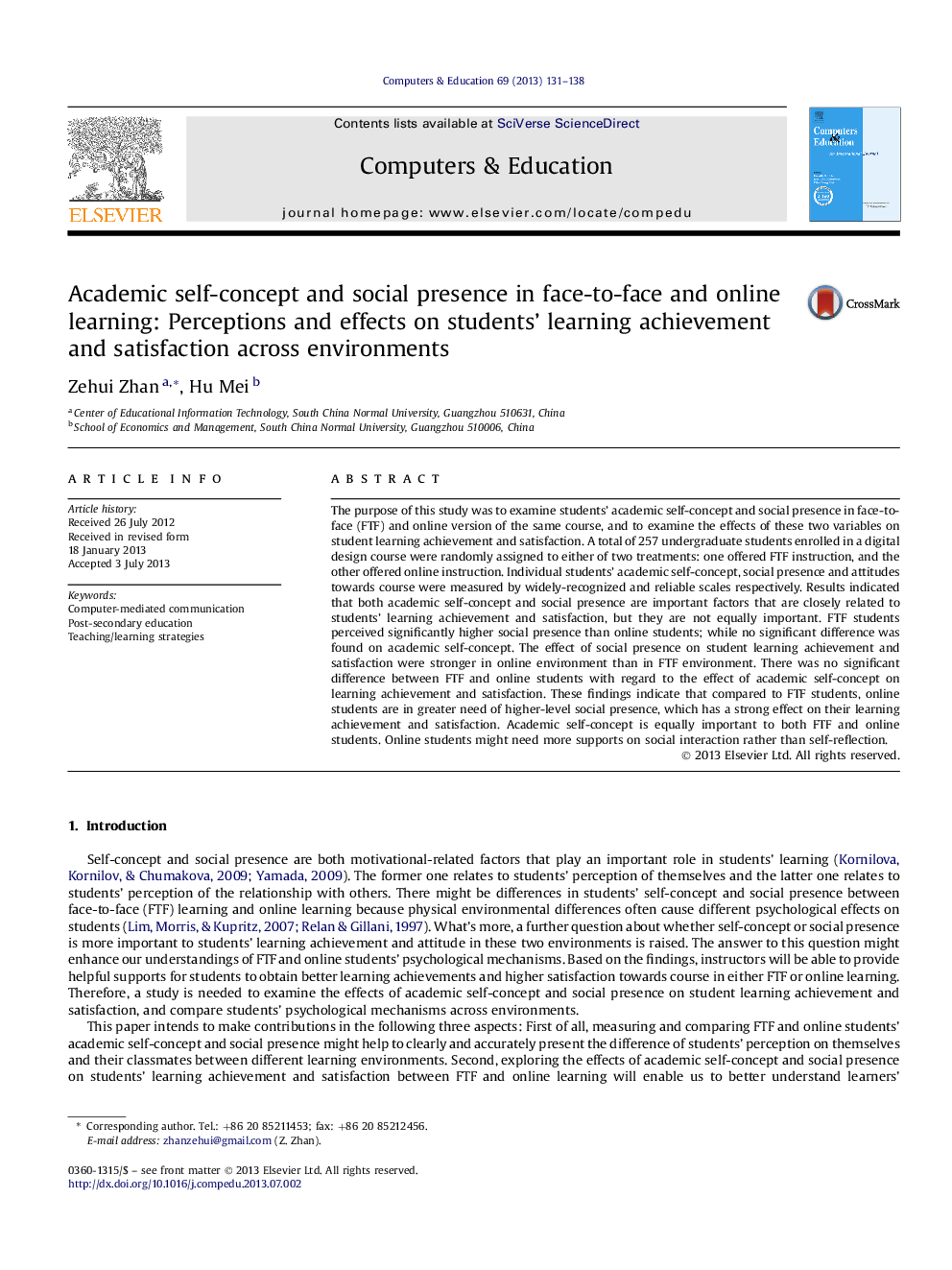| کد مقاله | کد نشریه | سال انتشار | مقاله انگلیسی | نسخه تمام متن |
|---|---|---|---|---|
| 6835444 | 618191 | 2013 | 8 صفحه PDF | دانلود رایگان |
عنوان انگلیسی مقاله ISI
Academic self-concept and social presence in face-to-face and online learning: Perceptions and effects on students' learning achievement and satisfaction across environments
ترجمه فارسی عنوان
خودآموزی آکادمیک و حضور اجتماعی در یادگیری چهره به چهره و آنلاین: ادراک و تاثیر بر موفقیت تحصیلی و رضایت دانشجویان در محیط ها
دانلود مقاله + سفارش ترجمه
دانلود مقاله ISI انگلیسی
رایگان برای ایرانیان
کلمات کلیدی
ارتباطات با واسطه کامپیوتر، تحصیلات تکمیلی، استراتژی های آموزشی / یادگیری،
موضوعات مرتبط
علوم انسانی و اجتماعی
علوم اجتماعی
آموزش
چکیده انگلیسی
The purpose of this study was to examine students' academic self-concept and social presence in face-to-face (FTF) and online version of the same course, and to examine the effects of these two variables on student learning achievement and satisfaction. A total of 257 undergraduate students enrolled in a digital design course were randomly assigned to either of two treatments: one offered FTF instruction, and the other offered online instruction. Individual students' academic self-concept, social presence and attitudes towards course were measured by widely-recognized and reliable scales respectively. Results indicated that both academic self-concept and social presence are important factors that are closely related to students' learning achievement and satisfaction, but they are not equally important. FTF students perceived significantly higher social presence than online students; while no significant difference was found on academic self-concept. The effect of social presence on student learning achievement and satisfaction were stronger in online environment than in FTF environment. There was no significant difference between FTF and online students with regard to the effect of academic self-concept on learning achievement and satisfaction. These findings indicate that compared to FTF students, online students are in greater need of higher-level social presence, which has a strong effect on their learning achievement and satisfaction. Academic self-concept is equally important to both FTF and online students. Online students might need more supports on social interaction rather than self-reflection.
ناشر
Database: Elsevier - ScienceDirect (ساینس دایرکت)
Journal: Computers & Education - Volume 69, November 2013, Pages 131-138
Journal: Computers & Education - Volume 69, November 2013, Pages 131-138
نویسندگان
Zehui Zhan, Hu Mei,
